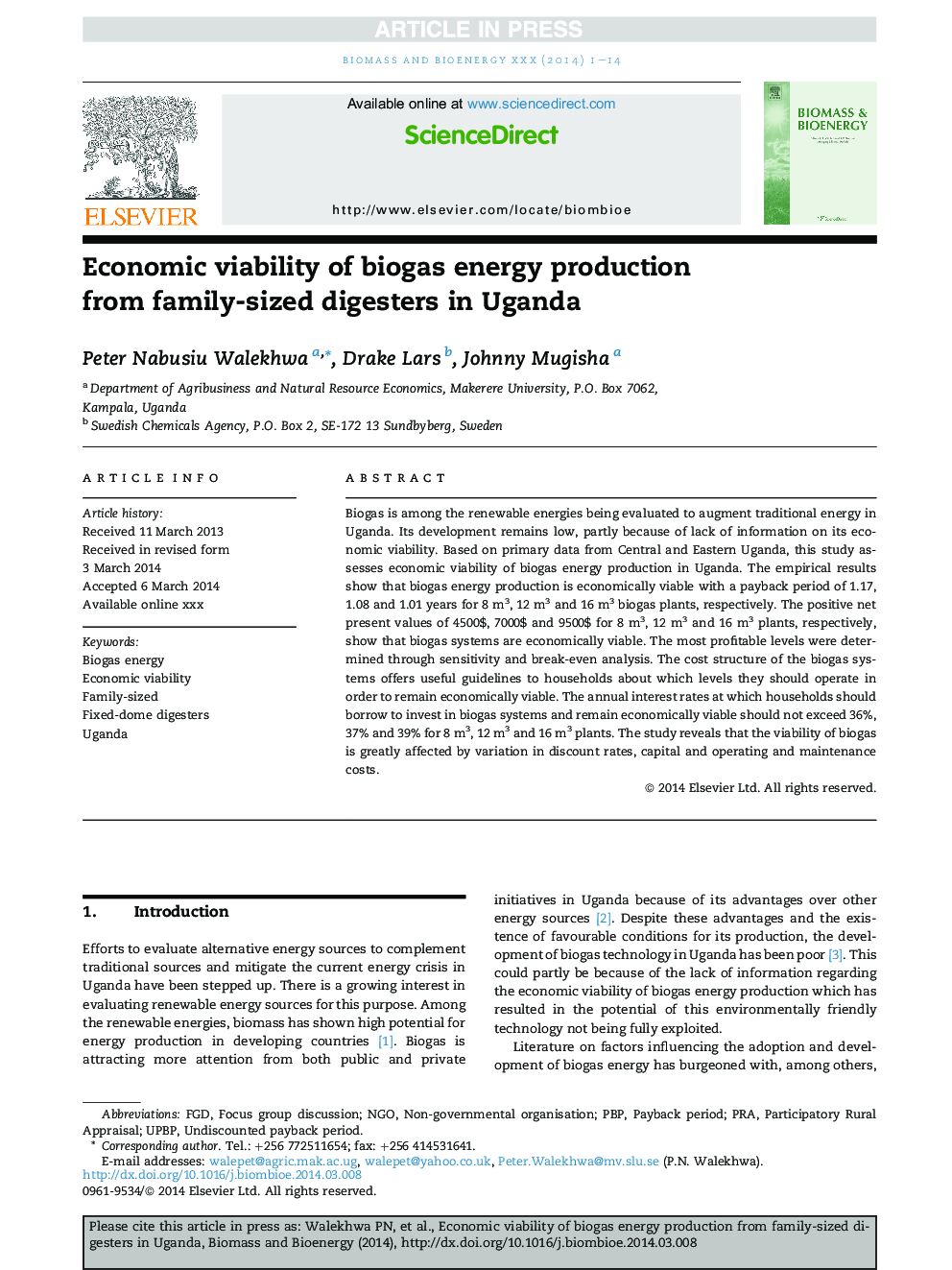| Article ID | Journal | Published Year | Pages | File Type |
|---|---|---|---|---|
| 7064129 | Biomass and Bioenergy | 2014 | 14 Pages |
Abstract
Biogas is among the renewable energies being evaluated to augment traditional energy in Uganda. Its development remains low, partly because of lack of information on its economic viability. Based on primary data from Central and Eastern Uganda, this study assesses economic viability of biogas energy production in Uganda. The empirical results show that biogas energy production is economically viable with a payback period of 1.17, 1.08 and 1.01 years for 8Â m3, 12Â m3 and 16Â m3 biogas plants, respectively. The positive net present values of 4500$, 7000$ and 9500$ for 8Â m3, 12Â m3 and 16Â m3 plants, respectively, show that biogas systems are economically viable. The most profitable levels were determined through sensitivity and break-even analysis. The cost structure of the biogas systems offers useful guidelines to households about which levels they should operate in order to remain economically viable. The annual interest rates at which households should borrow to invest in biogas systems and remain economically viable should not exceed 36%, 37% and 39% for 8Â m3, 12Â m3 and 16Â m3 plants. The study reveals that the viability of biogas is greatly affected by variation in discount rates, capital and operating and maintenance costs.
Keywords
Related Topics
Physical Sciences and Engineering
Chemical Engineering
Process Chemistry and Technology
Authors
Peter Nabusiu Walekhwa, Drake Lars, Johnny Mugisha,
